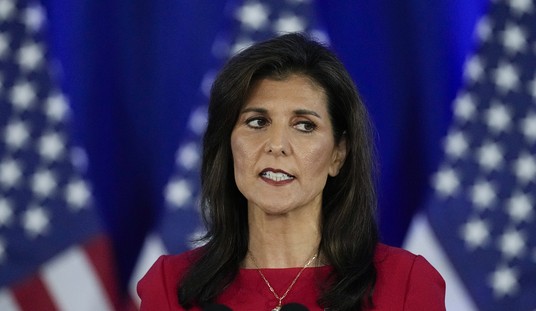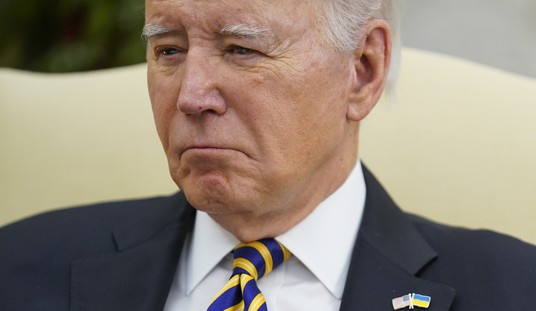Update (May 6): The Jerusalem Center for Public Affairs today published a detailed account of Iran’s plans to take over Syria.
There’s only one way to cut the Gordian Knot of regional conflict in the Middle East, and that is to de-fang Iran–destroy its capacity to make nuclear weapons and destroy the bases of the Revolutionary Guard.
Israel’s reported strike on a stockpile of Iranian missiles near Damascus overnight highlights the extent of Iran’s military presence in Syria. We do not (and will not) know the details, but the series of fireballs that “turned day into night” around the Syrian capital, as one observer told news media, make clear that an enormous amount of ordnance was in place. It was no secret that the Assad regime now depends on Iran and its cat’s paw Hezbollah. Hezbollah chief Hassan Nasrallah declared April 30 that Syria’s civil war had become a regional conflict: “Syria has real friends in the region and the world that will not let Syria fall in the hands of America, Israel or Takfiri (extreme jihadi) groups,” Nasrallah said in a broadcast on Hezbollah’s al-Manar TV channel. “How will this happen? Details will come later. I say this based on information … rather than wishful thinking.”
Israel’s head of military intelligence, Gen. Aviv Kochavi, warned in March that Iran and Hezbollah already had built an army of 50,000 in Syria and planned to double its size. Syria had an estimated 220,000 regular soldiers in 2010, but probably can field less than half that number today; at a prospective strength of 100,000, the Iranian-Hezbollah force would become the dominant military power in Syria, in effect an army of occupation.
The events of the past eighteen hours make clear that Iran intends to use Syria as a base for missile attacks on Israel. The Iranian Fateh-110 missiles can deliver a 1,500 lb. warhead accurately at a distance of 300 km (Tel Aviv is 214 km from Damascus). Iranian Revolutionary Guards launching missiles at Israeli cities from Syria represents a much greater threat to Israel than Hezbollah in southern Lebanon does. Hezbollah is vulnerable to Israeli retaliation; the Iranians don’t care how much Israel might retaliate against their Syrian hosts. Israel had to degrade Iran’s missile capability in Syria. By the end of July 2006, about half of Lebanon’s 1.2 million Shia had fled their homes in the face of Israel’s incursion into the south of the country. Most went to Syria. Things are different now: Syrians are fleeing into Lebanon. A repeat of Israel’s 2006 attack would have catastrophic impact on Hezbollah’s Shia base, which has nowhere to run. And the Israelis, if they are forced back into Lebanon, will not deal with Hezbollah as gingerly as did the Olmert government in 2006.
Iran’s intervention in Syria has turned the Syrian civil war into a proxy conflict between the region’s Shia and Sunni. Iran’s intent is to transform Syria from an ally into a protectorate. Syria’s Sunni majority resented but tolerated an Alawite police state, but will fight to the death against prospective occupation by a foreign Shi’ite power. Saudi Arabia and Turkey will continue to pour resources and fighters into Syria to prevent an Iranian takeover. The Sunnis fear a regional Iranian reign of terror under a nuclear umbrella and will fight to the death to prevent it. The Shia-Sunni conflict in Syria may spill over into Iraq, where remnants of Saddam Hussein’s military leadership have armed and recruited a Sunni fighting force, and Lebanon, where a jihadist “Sunni Awakening” challenges Hezbollah.
Sunni-Shia conflict is not necessarily averse to American interests; as Daniel Pipes, the dean of conservative Middle East analysts, wrote April 11, “Evil forces pose less danger to us when they make war on each other. This (1) keeps them focused locally and it (2) prevents either one from emerging victorious (and thereby posing a yet-greater danger). Western powers should guide enemies to stalemate by helping whichever side is losing, so as to prolong their conflict.” (I made a similar argument last year.)
Everything changes, though, if Iran acquires nuclear weapons. Instead of a containable war of attrition, we will have an Iranian reign of terror under a nuclear umbrella. If Washington and other Western capitals are intimidated by Iranian terror capabilities (including the Iranian threat to disrupt Western oil supplies) without nuclear weapons, what can we expect from the feckless diplomats of the West if Iran has the option of nuclear terrorism?









Join the conversation as a VIP Member